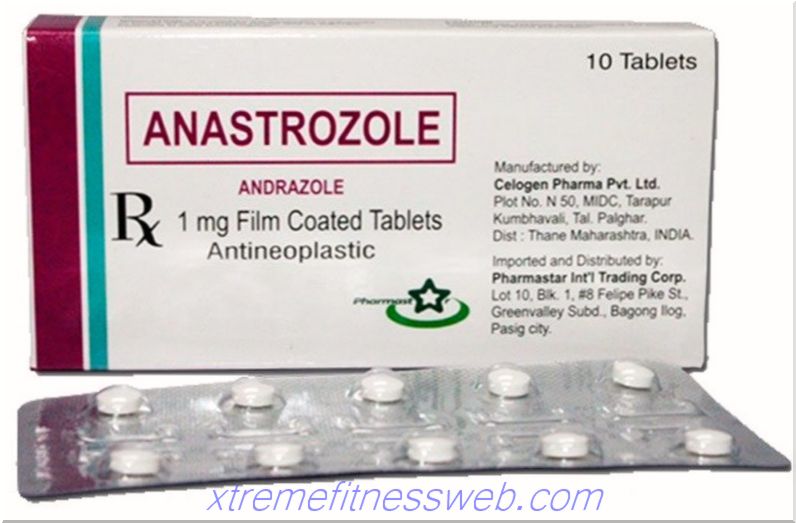
There is a widespread misconception that cholesterol is harmful to the body, and its content in the blood is one of the most important indicators of human health. Many in trying to maintain their health adhere to strict diets, excluding all foods containing cholesterol. However, few people know that it is part of cell membranes, give them strength and provide metabolism between the cell and intercellular substance and regulate the activity of enzymes. Thus, without cholesterol, the normal functioning of our body is impossible.
Despite the importance of cholesterol, excessive consumption of fatty foods of animal origin can lead to its increased content in the body, which negatively affects the state of health and can cause serious illness.
Cholesterol control will help maintain your health for many years, increase the body's natural resistance, increase life expectancy and improve its quality. In this article, we will dispel the most common myths about the role of cholesterol in our body and its metabolism. We will also look at the most effective ways to control cholesterol.
Content
- 1 Cholesterol - why is it needed "> 2 The negative effect of cholesterol
- 3 The role of lipoproteins
- 4 Signs of High Cholesterol
- 5 The effect of HDL and LDL on our health
- 6 Norms
- 7 The most effective treatments for high cholesterol
- 8 Folk remedies that help lower blood cholesterol
- 9 Healthy lifestyle as a method of fighting cholesterol
- 10 Conclusion
- 11 cholesterol. Myths and deception.
Cholesterol - why is it needed?
Cholesterol (from the Greek chole - bile and stereo - hard, hard) - was first detected in gallstones from here and got its name. It is a natural water-insoluble lipophilic alcohol. About 80% of cholesterol is synthesized in the body (liver, intestines, kidneys, adrenal glands, sex glands), the remaining 20% must come from the food we consume.
When circulating in the bloodstream, cholesterol, if necessary, is used as a building material, as well as for the synthesis of more complex compounds. Since it is insoluble in water (and, accordingly, in blood), its transportation is possible only in the form of complex water-soluble compounds, which are divided into 2 types:
Low Density Lipoproteins (LDL)
High Density Lipoproteins (HDL)
Both of these substances should be in a strictly defined ratio, their total volume should also not exceed the norm. This can lead to serious diseases of the cardiovascular system.
Functions of cholesterol in the body:
- ensuring the strength of cell walls, regulating their permeability to various molecules;
- synthesis of vitamin D;
- Adrenal synthesis of steroid (cortisone, hydrocortisone), male (androgens) and female (estrogen, progesterone) sex hormones;
- in the form of bile acids is involved in the formation of bile and the absorption of fats during digestion;
- participates in the formation of new synapses in the brain, thereby improving mental abilities and memory.
In fact, it is not cholesterol itself that causes harm, but its fluctuations beyond normal limits. Health problems can cause both excess and lack of it in the body.
The negative effect of cholesterol
According to statistics, people who died from cardiovascular diseases had a low level of high density lipoproteins, but a high content of low density lipoproteins.
Lipoproteins with an incorrect ratio or a prolonged high content in the blood can settle on the walls of blood vessels and cause atherosclerosis.
This dangerous disease occurs when plaques form on the vascular endothelium, which over time increase and accumulate calcium more and more. As a result, the lumen of the vessels narrows, they lose elasticity (stenosis), this leads to a decrease in the supply of oxygen and nutrients to the heart and tissues and the development of angina pectoris (the cessation of arterial blood flow to certain parts of the heart due to obstruction of the coronary artery is accompanied by pain and discomfort in the chest) . Often, precisely because of a violation of blood supply, a heart attack or myocardial infarction occurs. The formation of cholesterol plaques leads to damage on the inner wall of the vessels, a blood clot can form, which can subsequently clog the artery or come off and cause embolism. Also, a vessel that has lost its elasticity can burst with an increase in pressure in the bloodstream.
The role of lipoproteins
HDL is considered a “good” lipoprotein because of its ability to dissolve cholesterol plaques and remove it from the walls of arteries, the higher its percentage in relation to LDL (“bad” lipoprotein), the better. LDL transports cholesterol from the organs synthesizing it into the arteries, and with an increased content of this compound, these large insoluble molecules combine in the form of oily plaques, attach to the vessels and clog them. Having undergone oxidative processes, cholesterol loses its stability and can easily penetrate into the thickness of the walls of arteries.

Specific antibodies begin to be produced in large quantities on the resulting oxidized LDL. This leads to severe damage to the walls of the arteries. In addition, cholesterol helps reduce nitric oxide, increasing the risk of developing cardiovascular disease.
Nitric oxide plays an important role in the body:
- dilates blood vessels, lowers blood pressure, prevents the formation of blood clots in the bloodstream;
- plays an important role in the fight against bacteria and viruses that enter the body, destroys cancer cells;
- increases muscle stamina;
- participates in the exchange of information between different cells, is a neurotransmitter in synapses.
Reducing the level of nitrous oxide in the body will shake the work of all body systems.
HDL not only removes cholesterol from the blood back to the liver, but also prevents the oxidation of LDL.
Signs of an increase in cholesterol in the body
An increase in cholesterol is associated with a violation of lipid (fat) metabolism. This can be a symptom of not only atherosclerosis, but also other serious diseases:
- liver;
- kidneys (chronic renal failure, glomerulonephritis);
- pancreas (chronic pancreatitis);
- diabetes mellitus (a serious disease associated with a violation of the synthesis of insulin by beta cells of the islets of Langerhans in the pancreas);
- hypothyroidism (decreased synthesis of hormones by the thyroid gland);
- obesity.
Symptoms of atherosclerosis are due to a narrowing of the lumen of the vessels as a result of a long and persistent elevated level of cholesterol, and a deterioration in blood circulation in different parts of the bloodstream.
The main symptoms are:
- angina pectoris (sudden discomfort or pain in the chest arising from physical exertion or emotional stress);
- shortness of breath;
- arrhythmia (heart rhythm disturbance);
- cyanosis and swelling of the peripheral parts of the body (fingers, toes);
- Periodic leg cramps (intermittent claudication);
- memory impairment, carelessness;
- decrease in intellectual abilities;
- yellow-pink lipid deposits in the skin (xanthomas) are most often observed on the skin of the eyelids and in the ankle joints.
The effect of HDL and LDL on our health
Still, the opinion that the general level of HDL and LDL lipoproteins affects the state of health and their increase entails terrible consequences for the work of the whole organism. However, this statement is not entirely true. Yes, the above diseases will be accompanied by an increased content of lipoproteins in general, but it is much more important what is the ratio in the blood of “good” HDL and “bad” LDL. It is a violation of this proportion that leads to health problems. When determining the content of lipoproteins in the blood, 4 indicators are taken into account: the total amount of cholesterol, the level of HDL, LDL and triglycerides.
Norms
Total cholesterol in the blood - 3.0 - 5.0 mmol / l;
With the threat of atherosclerosis, total cholesterol rises to 7.8 mmol / l;
LDL in men - 2.25 - 4.82 mmol / L;
LDL in women - 1.92 - 4.51 mmol / l;
HDL in men - 0.72 - 1.73 mmol / l;
HDL in women - 0.86 - 2.28 mmol / l;
Triglycerides in men - 0.52 - 3.7 mmol / l;
Triglycerides in women - 0.41 - 2.96 mmol / L.
The most indicative is the ratio of HDL to LDL against the background of total cholesterol. In a healthy body, HDL is much higher than LDL.
The most effective treatments for high cholesterol
There are many drugs that lower cholesterol in cases where this indicator poses a serious threat to health, or already at the beginning of the development of atherosclerosis. It is necessary to pay tribute to a healthy lifestyle, an important part of which is proper nutrition. In such cases, diet and moderate physical activity will help not only bring all blood counts back to normal, but also completely heal and rejuvenate your body.
For a faster therapeutic effect, pharmacological preparations are used:
- Statins are the most popular drugs, the principle of their action is to inhibit the synthesis of cholesterol in the liver by blocking the corresponding enzymes. Usually they are taken 1 time a day before bedtime (at this time, the active production of cholesterol in the body begins). The therapeutic effect occurs after 1-2 weeks of systematic administration, with prolonged use they are not addictive. Of the side effects, nausea, pain in the abdomen and muscles can be observed, in rare cases, there may be individual sensitivity. Statin drugs can reduce cholesterol by 60%, but if they are taken for a long time, they should be tested regularly for AST and ALT. The most common statins: cerivastatin, fluvastatin, lovastatin.
- Fibrates stimulate the production of HDL, are recommended for triglycerides of 4.5 mmol / L. It is highly recommended not to use with statins. Side effects are manifested in the form of gastrointestinal upsets, flatulence, nausea, vomiting, and abdominal pain. Representatives of this group of drugs: clofibrate, fenofibrate, gemfibrozil.
- Sequestrants of bile acids . This group of drugs is not absorbed into the bloodstream, but acts locally - it binds to bile acids, which are synthesized from cholesterol, and remove them from the body naturally. The liver begins an increased production of bile acids, using more cholesterol from the blood, a visible positive effect occurs a month after the start of medication, and statins can be taken at the same time to enhance the effect. Long-term use of drugs can lead to impaired absorption of fats and vitamins, increased bleeding is possible. Side effects: flatulence, constipation. Such drugs include: colestipol, cholestyramine.
- Cholesterol absorption inhibitors inhibit the absorption of lipids from the intestines. Drugs in this group can be prescribed to people who have contraindications for taking statins, since they are not absorbed into the blood. In Russia, only 1 drug of the group of cholesterol absorption inhibitors, ezetrol, is registered.
The above measures are applied in neglected cases when it is necessary to quickly lower cholesterol, and a change in lifestyle cannot quickly give the desired effect. But even when taking pharmacological agents, do not forget about prevention, and harmless natural supplements, which with prolonged regular intake will help you prevent diseases of the cardiovascular system in the future.
Folk remedies to help lower blood cholesterol
- Niacin (nicotinic acid, vitamin PP, vitamin B 3 ). The mechanism of action has not been fully studied, but experiments show that after a few days of taking high doses of vitamin A, the level of LDL and triglycerides in the blood decreases markedly, but the amount of HDL increases to 30%. Unfortunately, it does not reduce the risk of developing cardiovascular complications and attacks. For maximum effectiveness, you can combine niacin with other methods of treatment.
- Omega-3 and omega-6 unsaturated fatty acids. Contained in fish oil and seafood, as well as in cold-pressed vegetable oils (unrefined). They have a positive effect on the nervous system, prevent rickets during the period of active growth, help lower cholesterol and blood pressure, improve blood circulation, strengthen blood vessels and give them elasticity, prevent their thrombosis, and participate in the synthesis of hormone-like substances - prostaglandins. The regular intake of sources of essential fatty acids will miraculously affect the work of the whole body, in particular, it will help prevent the development of atherosclerosis.
- Vitamin E. Extremely strong antioxidant, prevents the breakdown of LDL and the formation of fatty plaques. For the onset of a positive effect, you must constantly use vitamin in appropriate doses.
- Green tea contains polyphenols - substances that affect lipid metabolism, they reduce the level of "bad" cholesterol and increase the content of "good". In addition, tea contains antioxidants.
- Garlic . Fresh garlic is recommended to use to lower cholesterol, to prevent the formation of clots in blood vessels (dilutes blood). The active components that make up garlic are sulfur-containing compounds, in particular, alliin.
- Soy protein. In action, they are similar to estrogens - they reduce the likelihood of atherosclerosis. Genistein inhibits LDL oxidation due to its antioxidant properties. In addition, soy stimulates the production of bile, thereby contributing to the removal of cholesterol from the body.
- Vitamins B 6 (pyridoxine), B 9 (folic acid), B 12 (cyanocobalamin). A sufficient amount of these vitamins in the diet contributes to the proper functioning of the heart muscle, significantly reduces the risk of developing atherosclerosis and coronary heart disease.
What factors contribute to increasing cholesterol and the development of atherosclerosis "> Healthy lifestyle as a method of combating cholesterol
As far as you adhere to proper nutrition and an active lifestyle, the risk of developing various diseases is reduced. This is especially true for people at risk. By changing your lifestyle, you are organizing the work of the whole organism, even despite the tendency to any pathologies, internal defense mechanisms can easily cope with the threat.
Active sports improve metabolism, train the heart muscle simultaneously with skeletal muscles, contribute to a better supply of blood to all organs and systems (during physical exertion, blood from the depot goes into the general channel, this contributes to better saturation of organs with oxygen and nutrients).
Sports exercises also lead to the strengthening of the walls of blood vessels, prevent the development of varicose veins.
Do not forget about the importance of proper nutrition. Do not abuse strict diets. The body must receive all the nutrients it needs in the optimal ratio, vitamins and minerals, fiber. Adequate amounts of vegetables, fruits, cereals, lean meat, sea and ocean fish, vegetable unrefined oils, milk and sour-milk products should be present in the diet. If there is a lack of any vitamins in the diet, it is worth periodically taking preparations with their content for the prevention of vitamin deficiencies.
Quitting smoking will reduce the risk of developing not only atherosclerosis, but also a number of other diseases, such as bronchitis, stomach ulcers, and cancer.
Sport is the best remedy for stress and depression, it tempers the nervous system. Regular physical activity, whether it's a jog in the park or 3 hours of exercise in the gym, helps to remove the accumulated negative for the whole day and irritation, many athletes experience euphoria during training. It has been experimentally proven that active people are much less stressed than those who lead a sedentary lifestyle.
Conclusion
As you can see, cholesterol is an extremely important compound that performs a number of vital functions. It is necessary for our life, but in the body its amount should not go beyond the norm. Imbalance in the ratio of high and low density lipoproteins entails serious consequences.
The best treatment is timely prevention. The most effective way to prevent an increase in blood cholesterol is to have a healthy lifestyle.
Когда вы откажетесь от вредных привычек и начнете придерживаться вышеперечисленных правил, то совсем забудете о проблемах со здоровьем.
Холестерин. Мифы и обман.







